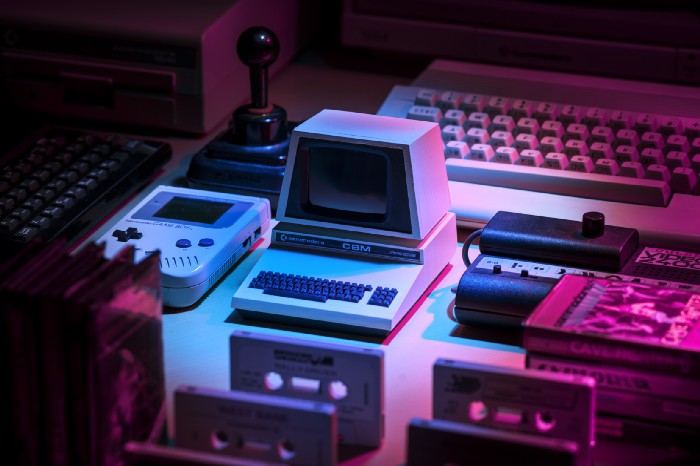
Legal Classic Game Emulation
The Gaming Industry needs to wake up and smell the millions.
The open-source game emulation market is vast, incredible quality, and the most prominent players use it on all major platforms. However, the end-users have difficulty legally buying ROMs and old IPs. As a result, it’s a multi-billion market waiting to come of age.
One of the reasons people might be looking for an emulated ROM game is because the company that released it no longer exists, making it challenging to find the title. Also, a common argument on the Internet is that it is perfectly legal to extract a ROM from a cartridge you own, but downloading it from the Internet is a crime.
Many game enthusiasts and collectors argue that emulation is vital to preserving the history of games so that the younger generations of tomorrow can play and experience them. While the previous point is helpful, I think the role of emulators in preserving the history of video games is what sets them apart from piracy.
The limited right granted by the Copyright Law to make backup copies of computer programs surely applies to games. The people who make emulators help publishers make older games playable again on modern hardware. Game publishers need to sell their back-catalogs. People will buy them instead of falling into piracy.
Nintendo is king in the noble art of doing it all wrong — all the time!
Nintendo is very active in the fight against outright piracy but generally targets companies that sell or distribute game copy devices. Pursuing this avenue pushes users to download the copyrighted archives from the Internet. Placing their potential customers in legal limbo is pathetic.
There is an evident demand for these ROMs. Devices like the ($60) Retrode allow anyone to mine a Super Nintendo or Sega Genesis game via USB and claim the legality of downloading them as a key selling point. The last thing Nintendo should be doing is go after the devices that enable users with the original product in their hands to make a copy of it.
It makes no sense at all. So instead, Nintendo should sell the hardware that validates that people have the original cartridges or disks and make this as easy as possible. And if you don’t have the source material, sell you a copy.
This company has removed classic game ROM sites from the Internet, suing their owners into oblivion. In addition, it frequently goes after fan-made games using Nintendo properties. So, gosh, get a grip, treat your fanbase with respect, and learn to take a compliment.
Adding insult to injury, Nintendo currently “rents” access to a tiny portion of its classic games library using, in many cases, subpar emulation. Since the 1990s, Nintendo’s tough stance on emulation practices has earned a reputation for being anti-piracy and tough on those who want to play video games that are no longer available at relatively low prices.
According to Nintendo’s official website, video game ROMs and emulation also pose “the biggest threat to the intellectual property rights of game developers today” and “could cause significant damage” to tens of thousands of jobs. The introduction of emulators designed to play illegally copied Nintendo software is the biggest threat to the intellectual property rights of game developers.
Nintendo has the wrong stance on the argument. They are, in fact, the biggest threat to their own intellectual property rights themselves. It is mind-boggling that companies choose to fight their customers and fan-base instead of meeting their needs.
Nintendo does not sell its old consoles. So legal emulation, with people buying the original IP from the owners, is the obvious and only way to go.
Sega and Microsoft are on the right path; Sony, as usual, is lost in translation.
Sega has published some of its most significant games time and time again. The problem is that they are republishing the same ones every time, leaving a lot of amazing games locked in storage for no apparent reason. Repackaging, remastering, and enhancing old software is not always the way to go. I would bet that most people would be thrilled with replaying their classics untouched. Just sell the ROMs. There are millions to be won.
Microsoft, and Phil Spencer, in particular, have publicly spoken about the importance of game emulation and preserving history. They have always done a fantastic job with retro-compatibility on consoles and PC gaming.
Sony never quite got it. As a result, each console has zero compatibility with past offerings. However, they make some effort to port some titles from their back catalog from time to time. The end result is that there are wonderful emulators for all their older consoles, up to the PS3, and no way for users to buy the software for them. Yet, anyone with access to the Internet can google their way to a pirated version. This masochist behavior from game publishers makes absolutely no sense.
Commodore computers legal emulation is a dream!
Cloanto, the holders of Commodore 64 and Amiga ROMs, and the AmigaOS, sell their IP, along with emulators. A lot of software publishers have placed old products for download. As a result, there are vast collections of Public Domain software to download, new games for sale (yes, years after the hardware manufacturer filed for bankruptcy). It’s heaven. This is the way to go. Give consumers what they want at fair prices, and people will buy them.
The “pirate” sites dilemma.
There is no legal precedent for copying and downloading ROMs for games you own; although an argument can be made for proper use, it has not been sufficiently tested in courts.
Legally, it’s hard to protect sites that revolve around unlimited downloads of copyrighted games when there is no way to establish that people own a copy of what they are downloading.
None of these will be problems if copyright holders listen to their potential customers. But, unfortunately, a market is crying blood for the products they are storing in the attic, apparently uninterested in consumers.





User feedback and comments